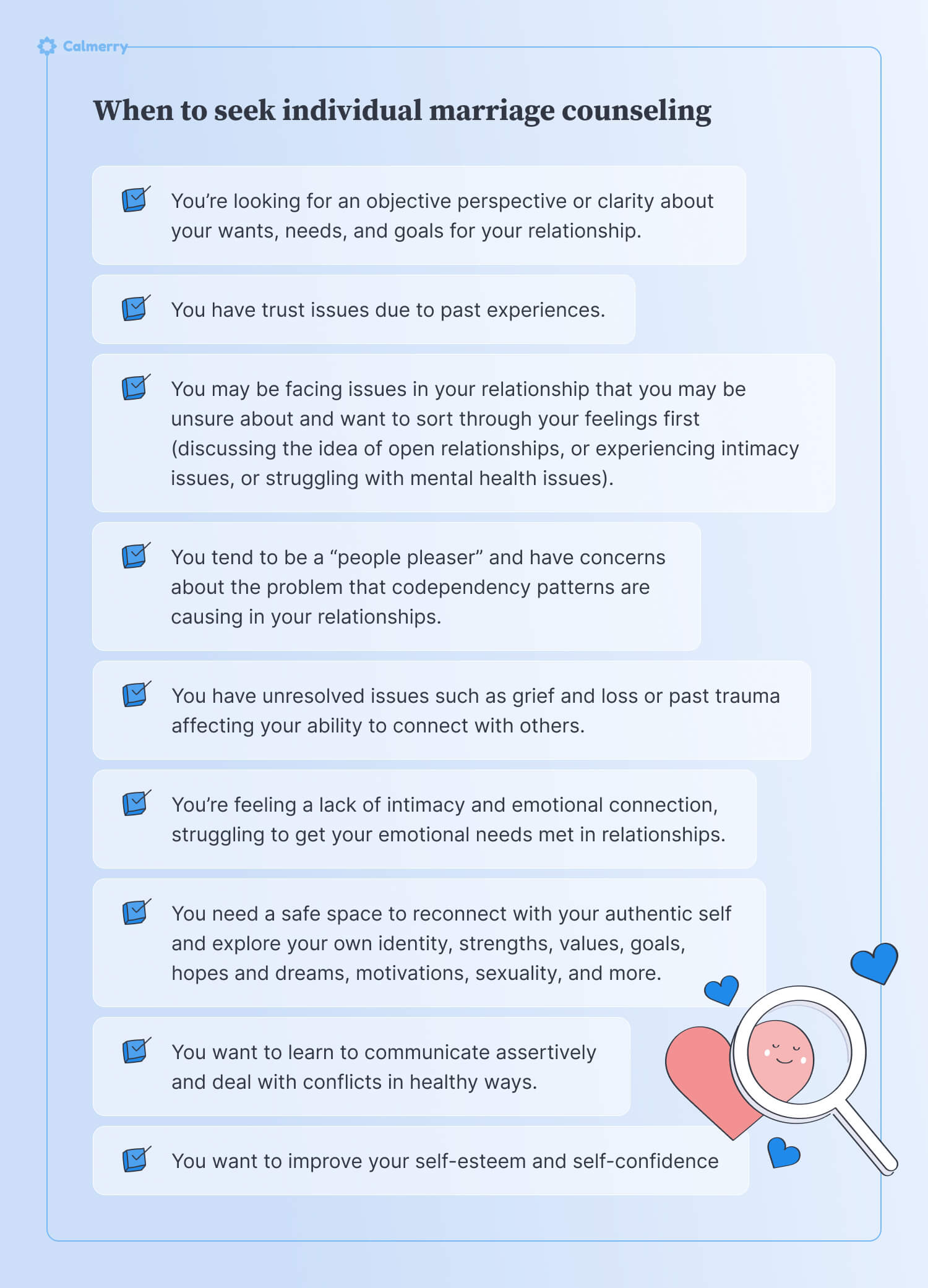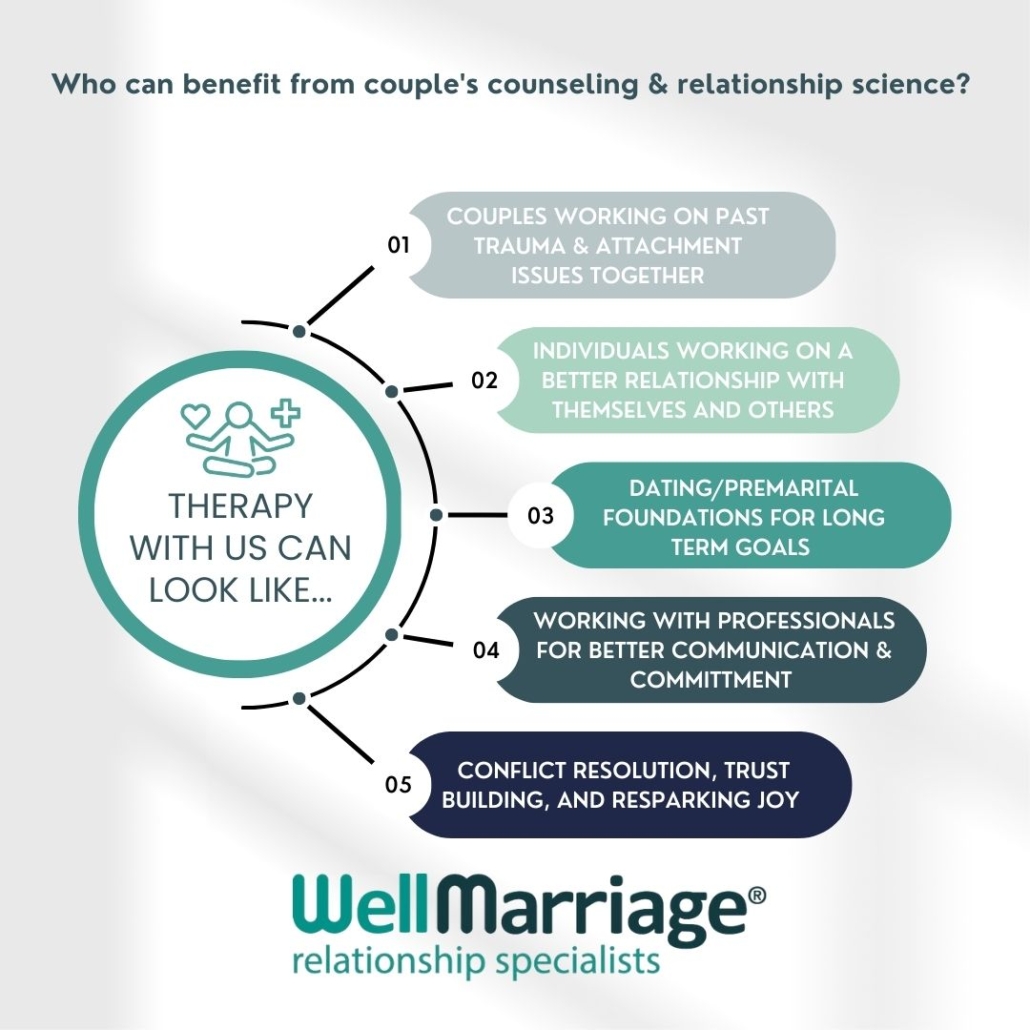
Understanding Relationship Counseling
Definition of Relationship Counseling
Relationship counseling is a specialized form of therapy focused on helping couples improve their communication, resolve conflicts, and enhance their emotional connection. It offers a safe space for partners to express their thoughts and feelings, facilitated by a trained professional.
Benefits of Relationship Counseling
The benefits of relationship counseling are numerous and impactful. Couples can expect to gain:
- Improved Communication: Learning to express thoughts without conflict.
- Conflict Resolution Skills: Tools to navigate disagreements.
- Enhanced Intimacy: Strengthening emotional and physical connections.
Many couples find that counseling not only helps them address current issues but also equips them with skills to foster a healthier, more resilient relationship in the future.

Signs It’s Time for Relationship Counseling
Communication Difficulties
If conversations often feel strained or you find yourselves misinterpreting each other, this indicates a need for relationship counseling. Effective communication is vital for a healthy relationship.
Constant Arguments
Frequent disagreements can create an unhealthy pattern. If you’re arguing over the same issues repeatedly, it may be time to seek help.
Lack of Intimacy
A noticeable decline in emotional or physical closeness can signal trouble. If partners no longer share personal feelings or intimate moments, addressing this gap through counseling could help rekindle the bond.

How to Approach Your Partner About Counseling
Setting a Safe Environment
When broaching the topic of counseling, creating a safe and supportive setting is crucial. Choose a comfortable space where both partners feel secure and open to discussion.
Expressing Your Concerns
Share your feelings honestly. Use “I” statements, such as “I feel we could benefit from some guidance,” to avoid sounding accusatory.
Encouraging Participation
Invite your partner to share their thoughts about counseling. Highlight the benefits, and suggest it as a team effort aimed at improving the relationship rather than a sign of failure. This approach fosters collaboration, showing that both partners are invested in the relationship’s well-being.

Choosing the Right Counselor
Qualifications to Look For
Selecting the right counselor is essential for effective relationship therapy. Look for a professional with:
- Relevant Credentials: Ensure they have a degree in psychology, counseling, or social work.
- Specific Training: Experience in relationship or couples therapy is crucial.
- Licenses: Verify they are licensed to practice in your state.
Compatibility and Comfort
Beyond qualifications, finding a counselor you both feel comfortable with is vital. Schedule initial consultations to gauge:
- Communication Style: Do they listen and offer support?
- Approachability: Is it easy to discuss sensitive issues?
This compatibility will foster an open environment, making it easier to tackle relationship challenges together.
What to Expect During Counseling Sessions
Format of Sessions
When attending counseling sessions, you can typically expect a structured format that includes:
- Opening Check-ins: Discuss recent events and feelings.
- Focused Discussions: Tackling specific issues or goals set by both partners.
- Skill-Building Exercises: Learning tools to enhance communication and intimacy.
Each session is designed to move at a comfortable pace for the couple.
Confidentiality and Trust
A cornerstone of effective counseling is confidentiality. Counselors will ensure that all discussions remain private, fostering a trusting environment. This trust allows couples to open up about sensitive topics without fear of judgment or repercussions, enabling deeper exploration of relationship dynamics that need attention. Establishing this trust is essential for meaningful progress in therapy.

Working Through Relationship Challenges
Developing Communication Skills
One of the primary focuses in relationship counseling is enhancing communication. Couples will learn techniques such as active listening and using “I” statements, which help to express feelings without assigning blame.
Addressing Trust Issues
Trust is foundational to any relationship. Counseling provides a space to discuss past hurts and miscommunications. Couples can work on rebuilding trust through honesty and transparency.
Managing Expectations
It’s essential for partners to recognize and discuss their expectations within the relationship. This involves aligning personal desires with those of the partner to foster understanding and satisfaction. Counseling can facilitate these discussions, ensuring both partners feel heard and valued. Working together on these challenges can lead to a stronger, more fulfilling relationship.

Maintenance and Aftercare
Implementing Strategies Learned
After counseling, it’s crucial for couples to actively apply the strategies they’ve learned. This might include:
- Regular Check-ins: Setting aside time to discuss feelings and progress.
- Practicing New Communication Techniques: Consistently using skills gained during sessions.
Follow-up Sessions
Scheduling follow-up sessions can be beneficial. These allow couples to:
- Address New Challenges: Discuss any emerging issues.
- Reinforce Strategies: Keep skills fresh in their minds.
Continued Personal Growth
Lastly, personal growth remains a lifelong journey. Both partners should pursue individual interests and emotional health, supporting a well-rounded relationship. Engaging in self-reflection, reading, or workshops can empower each partner, making the relationship more robust over time. This ongoing commitment to growth will ultimately enhance their connection and resilience as a couple.

Conclusion and Final Thoughts
Reflecting on Progress
As couples reflect on their journey through counseling, it’s vital to acknowledge the progress made. Celebrate the small victories, whether it’s improved communication or deeper understanding. Keeping a journal of these milestones can provide motivation and clarity during challenging times.
When Counseling May Not Be Enough
However, there are moments when counseling may not resolve all issues. If significant differences in values arise or trust issues are irreparably damaged, couples may need to consider other options. Recognizing when to seek individual therapy or even part ways is essential for personal well-being. Ultimately, each partner’s happiness and growth should take precedence, guiding decisions for a healthier future.
